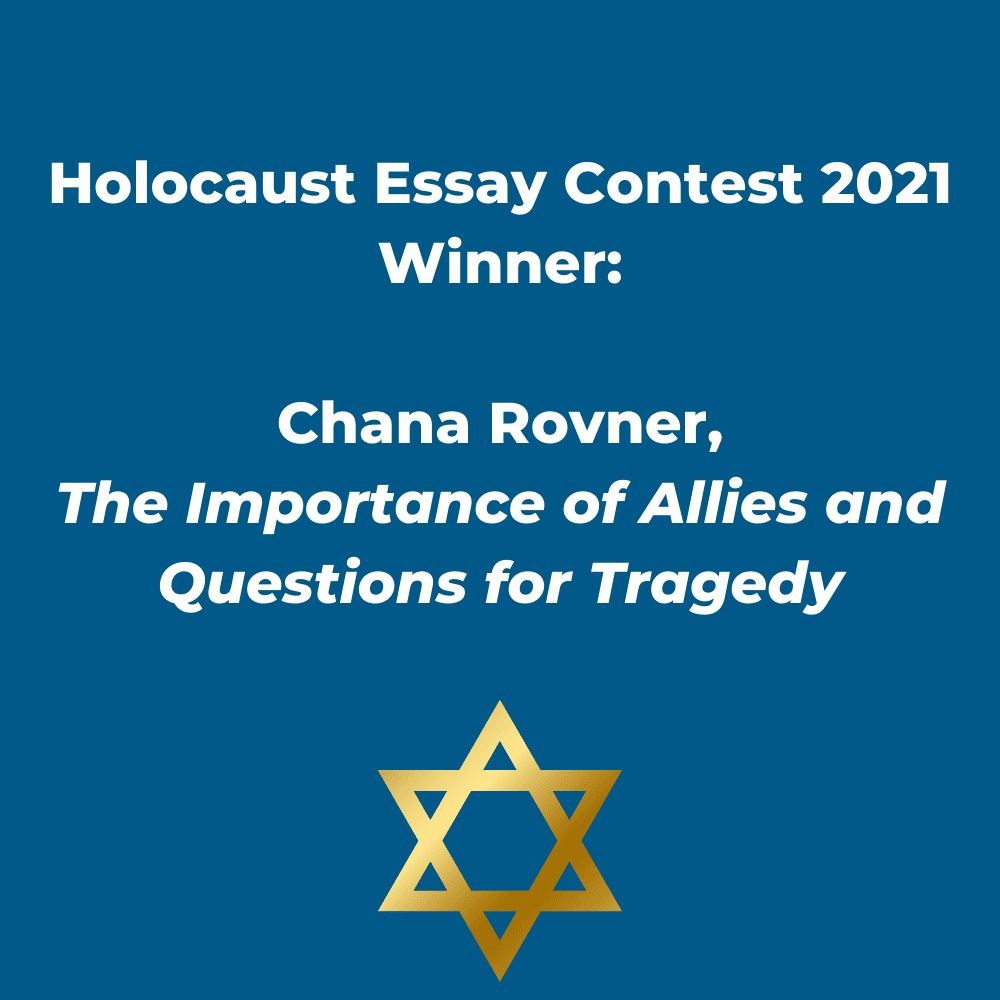By Chana Rovner
10th Grade, Goldie Margolin School for Girls
First Place, Memphis Jewish Federation’s 12th Annual Holocaust Essay Contest
During the Second World War, a great tragedy happened to us and others like us in Nazi Germany. The Nazis put people they thought were lesser in concentration camps in an attempt to “purify the Aryan race”. We would like to assume most people in Nazi Germany didn’t agree with Hitler and were forced to further their cause as a consequence of living in a fascist police state, but given recent events, empathizing with people who stand by when terrible things are happening is much harder. This is where allies are important, they didn’t passively stand by, they tried their hardest to get us out of Germany. Allies are important for any marginalized group, but they were responsible for our continued existence today.
There were many challenges that arose for the people trying to escape Germany at that time. They had to find people who were willing to hide or protect them until they could leave. They had to have plans for every situation. They had to plan for the possibility of getting caught, endangering the people who helped them, and what happens after they get out. They had to wrestle with moral dilemmas associated with getting out. They had to choose what was important to take with them across borders. They had to think about leaving their friends and family behind and find a way to go on knowing that they could have saved someone else. Did they have a moral obligation to help as many other people as possible right then, or should they simply hide?
The allies had many things to wrestle with as well. They had to take into account their own family’s health and safety and actively choose to fight and help other people. They had to figure out the best way to keep everyone safe and hidden while thinking about if getting the refugees out quickly was the most important thing. Was it safer to wait and hide? Is it worth it to put your own family at risk for another person? They had to weigh the risks of everything while outwardly pretending everything was fine. True allies are the most important thing to have, they have helped us get through the toughest of times with no hope of payment.
Once they had found allies to protect them and get them out, what do they do? How do they go on knowing that you could have done more? Did they feel responsible for others’ deaths? Do they thank their allies? If so, how? Now that they are outside of it and it’s all over, they have to think about how others perceive them. Will they try to hurt them more? It may take years for people’s perceptions to change. After all of this, are they willing to wait for as long as it takes to gain acceptance? If they can’t handle the trauma and possible PTSD, is throwing their life away a morally good option? Other people sacrificed themselves so they could go on living, do they owe it to them to keep living?
After going through a traumatic experience, such as that, a person has to question everything. They have to figure out a way to move on from possibly losing everyone and everything. They have to thank the people that helped them along the way. They have to deal with everyone’s preconceived notions of them since the Nazi propaganda is still used today. They had to wrestle with humanity and morality and they did. We got through. We survived and we can continue to survive thanks to all of our allies.
